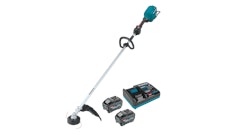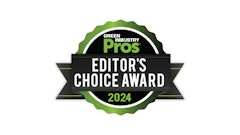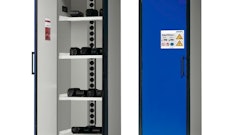
Throughout 2012, financial whiz Frank Ross has been leading us down the path of becoming better financial managers through tips and insights derived from his A Better Way 2 Learn Financials online training program. Here, in this final installment of the series, Frank discusses seven disciplines that make good managers great.
1. Pricing and Bidding
It’s simple: Develop your pricing strategy around what it costs you to perform the work. Dismiss myths of pricing jobs based on a multiple of materials or by forcing a gross margin. Use your own budget to strike the relationship between overhead cost and job cost, and price your work accordingly.
Secondly, know what your break-even point is. This is especially important in flat markets where bidding is competitive, but you don’t want to bid a job at a loss.
Never bid work to maintain cash flow or keep a crew busy—these tactics only dig your hole deeper. On the other hand, bidding thin is a legitimate strategy if doing so provides an opportunity for additional work at reasonable prices. Just make sure you know what you’re doing, which is why knowing your break-even point and overhead costs are so important.
2. Overhead
In good times, it’s natural for your company to swell. People are added for convenience functions, and money is more easily spent on items supporting the enjoyment of life. But in leaner times, this attitude can be fatal.
Inventory your organizational structure. Are your people in the right jobs? Are they maximizing their time for the benefit of the company? Can certain jobs be combined, or even eliminated, if revenue starts to lag?
Review each overhead account in detail. Make sure there is no unnecessary spending anywhere.
Review and reappraise the value of benefit packages. Start with insurance benefits. Then move onto compensation plans, uniform policies, truck take-home and reimbursement policies, sick leave, holiday and vacation policies, overtime policies, club memberships, entertainment reimbursements, and so on. For each, ask yourself if the company is receiving the maximum mileage for the policies that are in place. Analyze whether each plan should be left alone, adjusted or eliminated.
Budget in detail each overhead account for the coming year. Then assign the responsibility of monitoring that account’s spending to one of your key managers, or monitor it yourself.
Produce an income statement each month which will show actual monthly spending compared to what was budgeted.
3. Accounts Receivable
An efficiently run company should experience a turnaround of 30 days from the time of billing to time of collection. Here are some tips to help you achieve that:
- Develop an internal process for determining whether a client is a good credit risk.
- Succinctly define the credit terms in your sales agreement, and train your salespeople so they can explain those terms.
- Invoice work accurately and promptly.
- Create an aging schedule of accounts receivable and monitor it weekly.
- Create and enforce the collection procedures for past due performance.
- Understand your legal recourse if/when an account becomes uncollectible.
Check out more tips on collections here.
4. Materials Inventory
Materials inventory is an area which, if not monitored closely, can become a huge black hole for cash. Here are some tips to help avoid this black hole:
- Calculate the turnaround time for every material unit you purchase. Only stock those items which turn rapidly (within 90 days).
- Don’t over-order a product just to “fill out a load” or earn a slight discount. If the extra material you bought ends up in the garbage, how much money did you really save? So consider this when placing your order.
- Encourage suppliers to stockpile material for you until you need it. The fees you might pay for this service are often far less than what it will cost you to receive and care for the materials prematurely.
- Ask suppliers to ship materials directly to your jobsites, if practical. Madison Planting & Design Group is one landscape company that has begun to use this approach.
5. Fixed Assets
Investments in land, facilities and equipment take cash out of circulation. Thus, you should only make these investments if they will generate an immediate income stream.
Evaluate every fixed asset you have. Any fixed asset that doesn’t provide you the equivalent of a liquid return on your investment should be a candidate for sale.
Don’t assume that the appreciation of a fixed asset offsets the opportunity you lose by having your money tied up. Fixed-asset appreciation will always fall short of earning what liquid cash would if invested in the daily operations of your company.
Equipment – As a rule of thumb, unless you’re realizing at least 500 hours of production time per year, it is probably better to sell a piece of equipment and rent a comparable piece when needed.
Equipment – Leasing your highly utilized pieces of equipment is also something worth looking into. In the long run, leasing will always cost more. But it offers an advantage of not requiring a hefty outlay of cash on the front end.
6. Accounts Payable
Your suppliers can become some of your best allies. So don’t take advantage of their good faith. Treat them as you’d want your customers to treat you.
- Always monitor supplier balances via an aging schedule of accounts payable.
- Ask for terms. Most contractors don’t realize that “2/10 net 30” means that if you can pay your bill in 10 days, you’ll get a 2% discount. From the standpoint of the time value of money, that’s actually a 36% annualized discount. If you’re feeling really bullish, ask for “5/10 net 30”—that’s a whopping 91% annualized discount.
- If you run into cash-flow problems and can’t pay all of your bills in their entirety, just make sure everybody gets something every month.
- Maintain constant communication with suppliers. Non-payment might make them uneasy, but non-communication will make them mad.
7. Notes Payable
Every manager’s goal should be to operate debt-free. Still, if you must borrow, the following hints may help:
- When setting up a banking relationship, always do so with a letter of recommendation from your attorney, accountant or other advisor. Then, always go to the highest bank officer possible.
- Understand that a banker is not a business advisor. They will look at your business with a very narrow focus: repayment of loans.
- Remember that it’s easy to borrow money—until you convince a banker that you won’t be able to repay them.
- Never borrow money to pay for past mistakes; change your standard of living to do that. Only borrow to promote future growth.
By utilizing a unique training methodology known as A Better Way 2 Learn, financial expert Frank Ross can be present at all of your company’s financial meetings—for a fraction of the investment. Click here to learn more and to sign up for a no-risk trial offer.



























